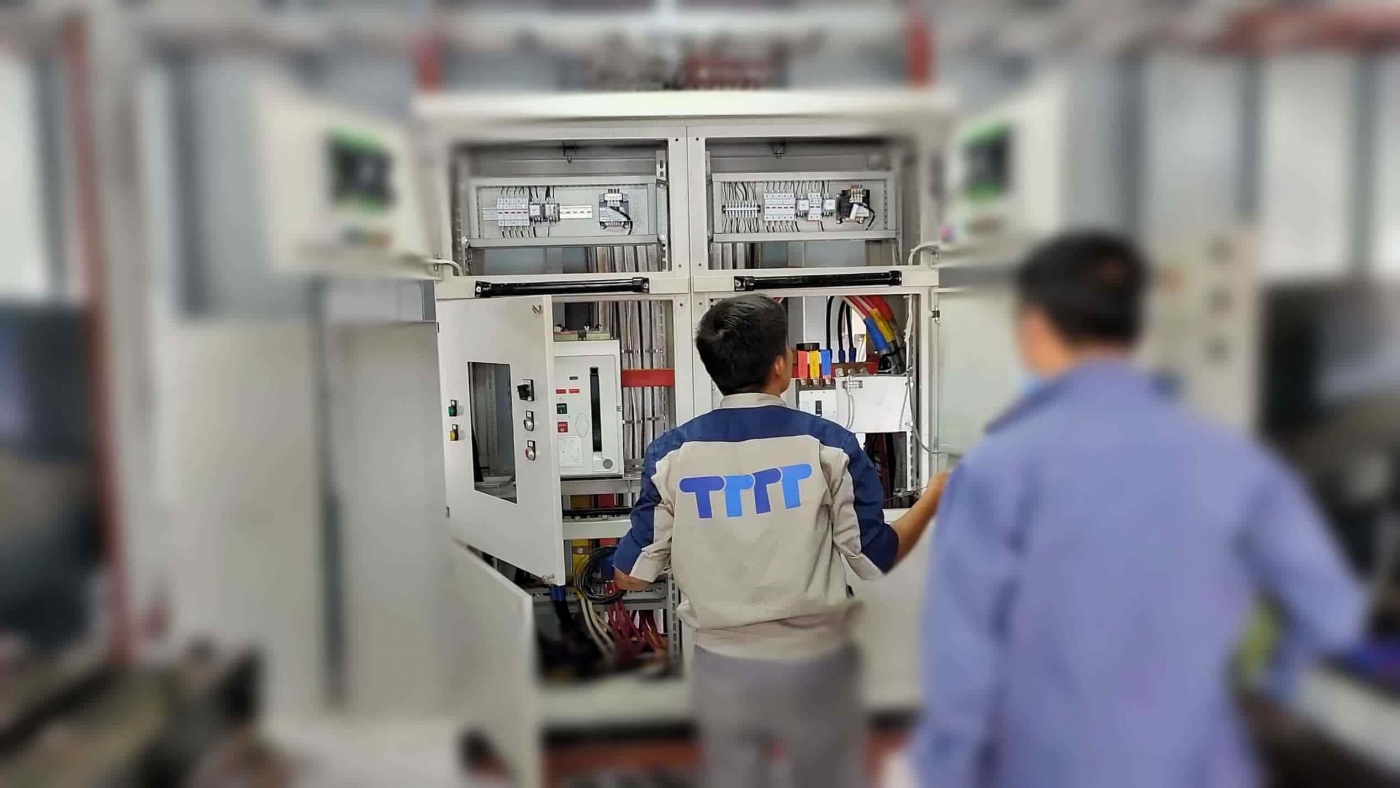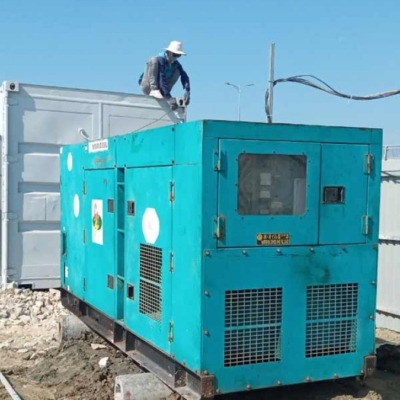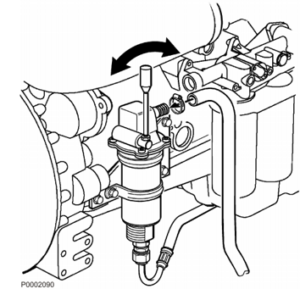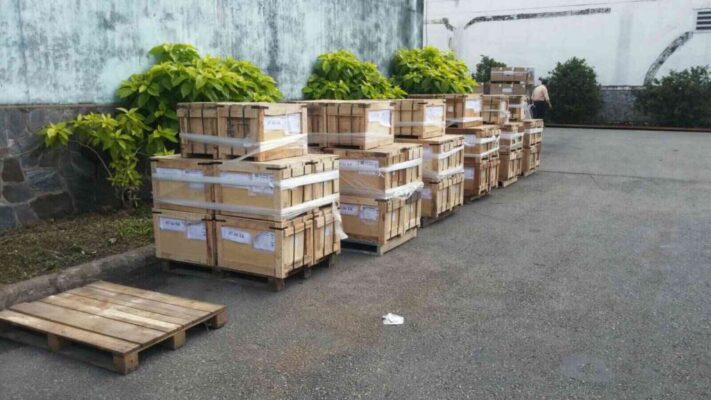In the context of increasing energy demand and increasing concerns about climate change, developing clean and sustainable energy sources is becoming more urgent than ever. Nuclear power plants in Vietnam, with the advantage of no greenhouse gas emissions and high efficiency, have been considered as an interesting option for Vietnam.
You may be interested in the following articles:
- Prospects of nuclear power
- What is a nuclear power plants ?
Contents
History of nuclear power plants development in Vietnam
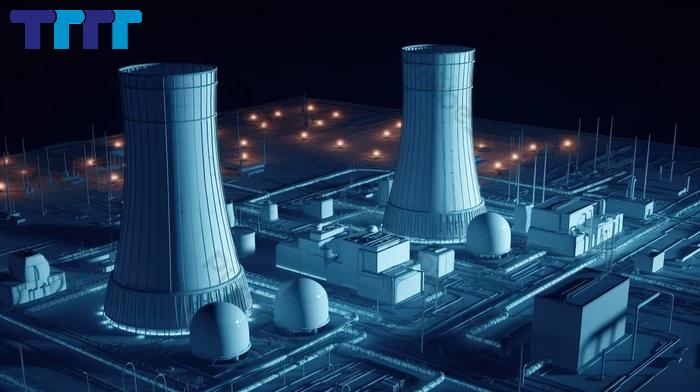
Initial efforts
Vietnam has begun researching nuclear power since the 1960s, when the Vietnam Atomic Energy Institute was established. However, due to limitations in resources and technology, the development process is very slow. In the first phase, Vietnam has set the goal of developing nuclear technology and plans to build a nuclear power plants in Vietnam for use in peaceful purposes and economic development.
However, due to limited resources and technology, the process of research and development of nuclear technology in Vietnam is very slow. Vietnamese researchers and engineers have faced many challenges, from a lack of investment capital for research to a lack of high-quality human resources.
To overcome these difficulties, Vietnam has sought international cooperation in the field of atomic energy. Through cooperation with international organizations and experienced partners, Vietnam has received support in technology, knowledge and experience in the field of nuclear power.
In addition, Vietnam has also invested in training high-quality human resources in the field of atomic energy, from engineers to researchers. This helps improve Vietnam’s nuclear technology research and development capacity.
Despite many difficulties and challenges, thanks to those initial efforts, Vietnam has gradually developed and advanced further in the field of atomic energy, especially in research and technology application. nuclear power.
See more: Selling 1500 KVA alternator
Plan to build the first nuclear power plants
In 2009, the Vietnamese Government approved the Atomic Energy Development Strategy, with the goal of building the first nuclear power plants in Vietnam by 2020. Planned locations include Ninh Thuan and Binh Thuan.
The plan to build the first nuclear power plants in Vietnam in 2020 is an important step in developing clean and sustainable energy sources for the country. The construction of nuclear power plants not only helps ensure stable electricity supply but also helps reduce greenhouse gas emissions, contributing to environmental protection.
Choosing the location to build the first nuclear power plant in Ninh Thuan and Binh Thuan is considered a suitable choice because these two provinces have favorable natural conditions, few natural disasters, and are also close to transmission lines. important electrical load. In addition, building factories locally also helps create jobs, develop the local economy and improve people’s lives.
To implement this plan, large investment is needed from the Government and related partners. Construction of a nuclear power plant requires high expertise, advanced technology and strict compliance with safety standards. At the same time, there needs to be a plan to train high-quality human resources to ensure safe and effective operation of the plant in the future.
In addition, the construction of nuclear power plants also raises issues of risk management, environmental protection and energy security. Timely prevention and response measures are needed to ensure the safety of the community and surrounding environment.
In summary, the plan to build the first nuclear power plant in Vietnam is an important step in ensuring energy supply for socio-economic development while minimizing impact on the environment. Implementing this plan requires careful preparation, large investment and high professionalism from relevant parties.
The project was suspended
However, after the nuclear accident in Fukushima, Japan in 2011, this plan was postponed due to safety concerns and large investment costs. In 2016, the Vietnamese National Assembly decided to suspend the nuclear power plant construction project.
Technology used in nuclear power plants in Vietnam
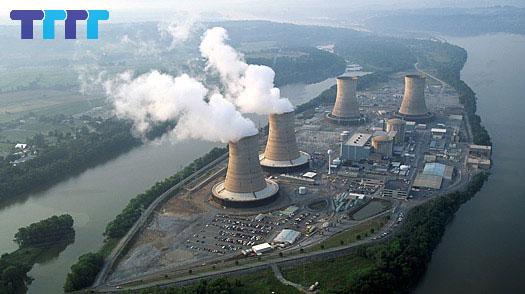
Nuclear reactor
A nuclear reactor is the heart of a nuclear power plants in Vietnam, technology options may include:
Pressurized light water reactor (PWR)
- The most popular technology in the world
- Use light water as a cooling medium and as a reaction controller
- For example: Technology of Westinghouse (USA), Areva (France)
Boiled Water Reactor (BWR)
- Use boiled water to generate steam directly from the reactor
- For example: Technology of General Electric (USA), Hitachi (Japan)
High Heat Reactor (HTGR)
- Use inert gas as a cooling medium
- Has higher safety potential than other types of reactors
- For example: Technology from China and Japan
Nuclear fuel cycle
Vietnam will also need to develop a nuclear fuel cycle supply chain, including:
- Uranium mining and enrichment
- Manufacturing nuclear fuel
- Storage and treatment of nuclear waste
Safety and protection system
Safety and protection systems are important elements in the design and operation of nuclear power plants. Vietnam will need to comply with international safety standards and develop an appropriate legal framework.
Risk of nuclear accident
Although modern nuclear power technologies have significantly improved safety, the risk of nuclear accidents remains a major concern. Nuclear accidents can cause serious consequences for the environment and human health.
Nuclear waste management
Nuclear waste is a difficult problem in the nuclear power industry. Vietnam will need to build infrastructure and processes for safe and effective nuclear waste disposal.
Ensuring nuclear security
Nuclear security is another important issue that needs attention. Vietnam needs to take measures to prevent and respond to threats such as terrorism, cyber attacks and harmful nuclear acts.
Impact of nuclear plants in Vietnam on the environment and society
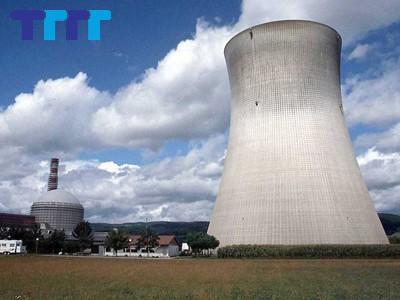
Environment
- Reduce emissions: Using nuclear power helps reduce the amount of CO2 and toxic substances released into the environment. Reducing emissions is one of the important measures to protect the environment and reduce the negative impacts of climate change. . In the power generation industry, the use of nuclear power is considered an effective solution to reduce the amount of CO2 gas and toxic substances released into the environment. Nuclear power does not produce CO2 emissions during electricity production, thus helping to reduce the carbon emissions of the power industry. Compared to using fossil fuels such as coal, oil or gas, nuclear power does not cause air pollution and does not affect the performance of the living environment. In addition, the use of nuclear power also helps reduce the amount of toxic substances such as sulfur dioxide, nitrogen oxides and volatile organic compounds that are often produced from burning fossil fuels. These substances not only pollute the air but also affect human and animal health.
- Waste management: Strict measures are needed to safely handle nuclear waste, avoiding environmental pollution. Nuclear waste management is an extremely important issue and needs to be handled properly. Be careful to ensure safety for the environment and people. Below are some strict measures that need to be applied in nuclear waste management:
- Waste classification
- Safe storage
- Handling and disposal
- Supervision and inspection
- Training and awareness raising
In short, nuclear waste management requires strictness and professionalism from the authorities as well as cooperation from the community. Correct implementation of management measures will help minimize the risk of environmental pollution and protect human health.
Society
- Stable energy: Nuclear power helps provide a stable source of energy for production and daily life. Nuclear energy is an emission-free, stable and highly efficient energy source. The use of nuclear power helps provide a stable source of energy for production and our daily lives.
- Stability: One of the biggest advantages of nuclear power is its high stability. Nuclear power plants operate continuously and are not affected by factors such as weather or fuel price fluctuations. This helps ensure a stable power supply for areas using nuclear energy..
- High efficiency: Nuclear energy is more efficient than many other energy sources such as coal or oil. A small amount of nuclear fuel can generate large amounts of electricity, helping to optimize resource use and minimize environmental impact.
- Does not cause emissions: Compared to traditional energy sources such as coal or oil, nuclear energy does not create emissions that cause air pollution. Using nuclear power helps minimize negative impacts on the environment and improve air quality..
In the context of population growth and increasing energy demand, the use of nuclear power is a reasonable solution to ensure a stable, clean and efficient energy supply for production and life. our daily.
- Job creation: Construction and operation of nuclear power plants in Vietnam create job opportunities for local workers. The construction and operation of nuclear power plants not only brings clean and stable electricity to the country but also creates job opportunities for local workers. The process of building a nuclear power plant requires cooperation between experts, engineers, workers and local labor.
- Construction of nuclear power plants in Vietnam:
Building a nuclear power plant requires a large workforce, from constructing infrastructure to installing high-tech equipment.
This job creates job opportunities for workers, builders, construction engineers, quality inspectors and many other occupations.
- Operating nuclear power plants in Vietnam:
After completing construction, the plant needs to be operated and maintained periodically to ensure stable and safe operation.
Operating nuclear power plants creates job opportunities for electrical engineers, technicians, security staff, maintenance staff, project managers and many other occupations
- Construction of nuclear power plants in Vietnam:
- Job creation: Construction and operation of nuclear power plants in Vietnam create job opportunities for local workers. The construction and operation of nuclear power plants not only brings clean and stable electricity to the country but also creates job opportunities for local workers. The process of building a nuclear power plant requires cooperation between experts, engineers, workers and local labor.
Conclusion
In the context of rising energy demand and commitment to reducing greenhouse gas emissions, the construction of nuclear power plants in Vietnam is becoming more urgent than ever. Despite facing many safety, environmental and legal challenges, the nuclear power industry still offers great potential for the country’s sustainable development. Vietnam needs to continue thorough research, evaluation and international cooperation to ensure that the use of nuclear power will bring the highest benefits and safety to the community and the environment.
See more: Update the latest prices of wind and water alternator in 2024
Company name:
TTTT GLOBAL co Ltd,.
Address: Landmark 4 Building, Vinhomes Central Park, 720A Dien Bien Phu Str, Ward 22, Binh Thanh District, Ho Chi Minh City, Vietnam.
Website: https://ttttglobal.com/en/
Hotline: +84286 2728 334
Email: Info@ttttglobal.com

